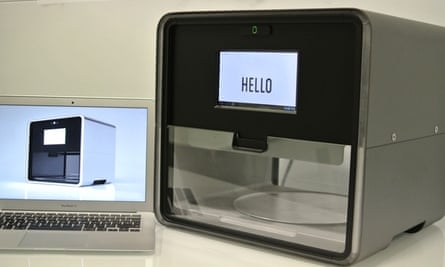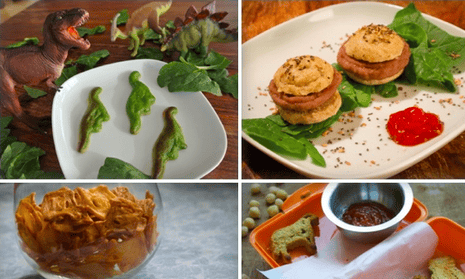Much of science fiction becomes science fact some day (faster-than-light travel notwithstanding), and this year seems to be the turn of Star Trek's replicator: a new Kickstarter is $50,000 into its goal to build a 3D-food printer, capable of turning fresh ingredients into a meal without cooks having to get their hands dirty.
The Foodini is described by its manufacturers as "the first 3D-food printer to print all types of real, fresh, nutritious foods, from savory to sweet". They've already made a prototype, and are trying to raise $100,000 to begin a full production run.

The printer works by taking fresh ingredients, prepared for printing by cooking and blending, and extruding them through a nozzle on to a a glass plate. It might not sound particularly appetising, but with the right ingredients, the printer could save time and effort, or make intricate designs that would be impossible to replicate by hand. Examples include pumpkin gnocchi, christmas-tree-shaped cookies, and elaborate, edible vessels for holding dips or nibbles.
And despite 3D-printer firm Maker warning last year that "you will not be able to, for example, scan a hamburger and then eat the digital design," Foodini does indeed promise to allow users to print hamburgers — although they still require cooking the old-fashioned way.
Compared with other prototypical food printers, the Foodini focuses heavily on using fresh and natural ingredients. Rather than attempting to extrude something like chocolate into incredibly complex designs, the firm instead aims "to streamline some of cooking's more repetitive activities - forming dough into fish-shaped crackers, or forming ravioli". It is perhaps best thought of as an extremely fancy pasta machine.
Backers of the Kickstarter can pay $999 to reserve a Foodini from the company in advance, $301 less than the "expected" retail price.

Comments (…)
Sign in or create your Guardian account to join the discussion